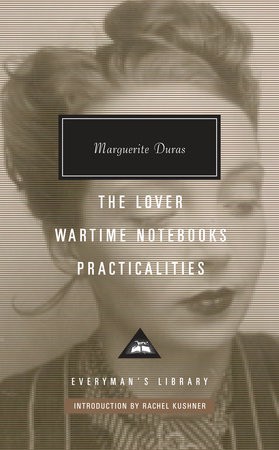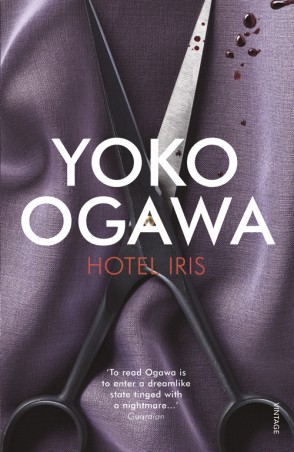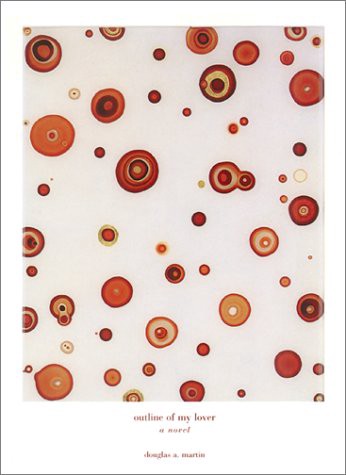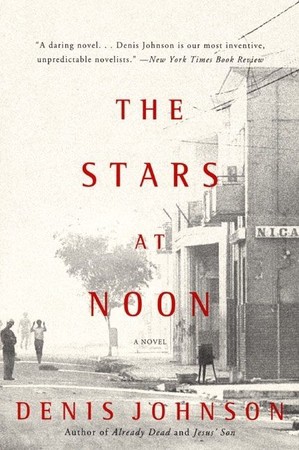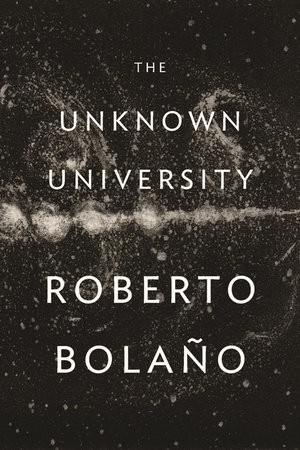Reading Lists
The Best Literary Sex Scenes
Lisa Locascio, author of ‘Open Me,’ on 11 books that get sex right

Sometimes I am asked why I write about sex, a question that reflects the prurience with which the subject is generally treated. Sexual intimacy, one of the great common experiences of human life, is still somehow verboten, set apart. I write about that which interests me — desire and danger, connections and failures to connect — and sex is a pulsing intersection of those interests. It is the parapet from which we can look down and witness the tiny machinations of interaction laid bare, the summit of a volcano, an explosion that offers perspective. Casual or committed, sex is infused with overwhelming vulnerability, which makes it easy to mock, even easier to stereotype or avoid, and very, very hard to write.
“Sex is a doorway to something so powerful and mystical,” David Lynch has said, “but movies usually depict it in a completely flat way.” On this count, literature can be just as bad as cinema. When it comes to turgid prose — all puns intended — the traditionally feminine and maligned genres of erotica and romance have rarely been the book world’s worst offenders. It is literary fiction that has given us our most groan-worthy depictions of coitus and its consequences. From John Updike’s disembodied experience of receiving oral sex, in Couples, from the “floral surfaces of [a woman’s] mouth” to Jonathan Franzen’s inexplicable “excited clitoris [that] grew to be eight inches long, a protruding pencil of tenderness,” those lauded as Great American Authors reliably function as low-cost birth control. (The Literary Review, which gives yearly Bad Sex awards, honored Updike for lifetime achievement in 2008.)
Despite the stomach-turning, wan, and dull missteps that pepper the literary landscape, when sex in books is good, it is very, very good. Here are eleven works that get this most singular of embodied adventures right — or exactly wrong, depending on your tastes.
The Lover by Marguerite Duras, translated by Barbara Bray
Set in 1929 French Indochina — today, Vietnam — Duras’s slim 1986 novel is based on her own early life, an intricately constructed meditation on colonialism, familial violence, displacement, secrets and lies, and the transcendent honesty of the erotic. When the fifteen-year-old daughter of an impoverished French family meets the scion of a Chinese business empire, they begin a series of secret afternoon assignations in which their selves are laid bare in torrential mutual discovery. “And now once more they are caught together, locked together in terror, and now the terror abates again, and now they succumb to it again, amid tears, despair, and happiness.” The consequences of their affair and the impossibility of its consummation in marriage ripple across the rest of both lovers’ lives, far beyond the Mekong Delta ferry station where they first meet.
Hotel Iris by Yoko Ogawa, translated by Stephen Snyder
This compressed, affecting novella follows the seventeen-year-old protagonist Mari’s hypnotic attraction to a mysterious Russian translator whom she first encounters issuing orders to a frightened prostitute with whom he is staying at her family’s down-market seaside motel. The odd couple begin meeting for intense, consensual sessions of dominance and submission, during which Mari’s hair is cut, she is beaten, whipped, bound with rope, and her lover chokes her with a scarf — all to her mounting pleasure and increasing independence from her overbearing mother. For Mari, the pleasure of submission opens another world, a hunger “to stay wrapped in this shadow forever.”
Outline Of My Lover by Douglas Martin
The first novel by a gifted magician of the hybrid form, Douglas’s debut is a dead sexy trawl through the queer universe of early 1990s Athens, Georgia. Alienated from his family and newly arrived at college, a young man finds his way into the muddy glamour of bars and music venues, seeking in a rock star an erotic savior who will redeem and make sense of the torpor and emptiness of his early life. His wish is granted, plunging him into an embodied chamber of deep feeling and the intense mirror of the beloved: “What I can get from him must be all I need.” A devastating and elemental consideration of fame, desire, and youth.
The Stars At Noon by Denis Johnson
“I was naked, but I suppose that was my armor.” Sometimes sex is currency, disaffected and transactional, but what is a laboring body to do if a sexual encounter punctures its protective carapace? This dilemma that afflicts the troubled protagonist of Johnson’s third novel, an American woman trapped in 1984 Nicaragua, who may be a journalist, spy, prostitute, or perhaps all three. The fraught landscape, in which good and evil are hopelessly intertwined, and only graft and brute self-interest seem to function, is mirrored by the cynical interiority of the novel’s unknowable heroine. When a Brit as inscrutable as she enters the picture, the narrator meets her match and is forced into sincere feeling. Johnson masterfully shows how moments of aperture become deadly liabilities in wars interior and exterior.
Suicide Blonde by Darcey Steinke
Suicide Blonde is the story of Jesse, a sexual explorer in San Francisco’s Tenderloin. In love with an emotionally distant bisexual man and employed as a caretaker for a Boschian figure named Madame Pig, Jesse seeks meaning and stimulation. Her foil is Madison, powerful and beautiful and poisonous, who makes her living granting and denying the fantasies of others. The novel features an unforgettable fisting scene that I’ve never quite been able to shake since reading it at age thirteen, and a page for page wealth of surprising, illuminating brutality and original thought about the life of the body.
One Hundred Strokes of the Brush Before Bed by Melissa Parente, translated by Lawrence Venuti
Written when the author was a teenager and published in English under the semi-anonymous name “Melissa P.” in 2003, this brief, immersive novel is styled as the diary of a fourteen-year-old Italian girl who glides in a kind of trance from her first sexual experience to increasingly debauched experiments with sadomasochism, group sex, and anonymous encounters with both men and women. Told with a lonely singularity, this is a story of hunger for experience: “I want to feel my heart melt, want to see my icy stalactites shatter and plunge into a river of passion and beauty.”
Lost Girls by Alan Moore and Melinda Gebbie
Printed in three handsomely-bound volumes, Lost Girls is a graphic novel loosely structured around a story about The Wizard of Oz’s Dorothy, Alice In Wonderland’s Alice, and Peter Pan’s Wendy encountering each other in an Austrian hotel on the eve of World War I. Sexual storytelling, discovery, and a veritable encyclopedia of hijinks ensue. Lost Girls is distinguished by its truly omnivorous approach to sexuality — no taboo is left unexplored — as well as by Gebbie’s luminous illustrations. Written over a period of sixteen years, Gebbie and Moore’s work is a true collaboration, with Gebbie’s artwork providing the narrative pushback necessary to rein in Moore’s famously verbose style. Lost Girls is a work that accomplishes Gebbie’s thoughtful initial inspiration: “When I was about 10, that was when I first started thinking about sex officially,” she says, “and I thought, ‘There must be a beautiful book somewhere, that will tell me everything I want to know, and it will be beautiful, and everything will be explained, and once I see it, I will know everything there is to know about sex.’ And of course, there was no book. There never has been a book. And I finally got a chance to do one.”
The Vanishing Princess by Jenny Diski
This powerful collection of Diski’s fearless work made her known to a much wider readership — sadly posthumously, as it was published after her untimely death from cancer in April 2016. These stories explore the interior lives of women who discover how little their wild and wondrous selves can be contained by the categories with which others define them. The realms of desire and the beloved take center stage in many of these narratives. The story “Housewife” epitomizes the magic trick Diski plays in many different registers and keys, inviting the reader into the lush and shockingly vivid sexual play between a housewife in her fifties and her clandestine lover — an arrangement salutary to the conventional husband who knows nothing of it. Styling each other “Witch” and “Witchfinder,” these lovers create a universe all their own: “ ‘Do you want more?’ you asked. And I begged for your saliva, a river of it. […] I like you mad, my demented Kentish batwitch. You are with me, in that place (in all the places) where you live in me.”
Excavation by Wendy C. Ortiz
Published by Future Tense Books in 2014, Excavation is the creative nonfiction bildungsroman of Ortiz’s girlhood, the story of her coming-of-age. Center stage is her relationship with the predatory middle school teacher who cultivates her youthful sexuality and desire for attention, and one layer of Excavation is a harrowing story of abuse, invisibility, and emotional turmoil. But the power of Ortiz’s dynamic prose refuses and refigures the tropes of the victim/perpetrator paradigm that so informs the popular understanding of stories like hers. With unflinching psychological acuity and penetrating intellect, Ortiz recreates the conflicted and vivid phenomenology of her younger self’s nascent desire — and in taking her power back remakes a genre.
What Belongs To You by Garth Greenwell
Obsessive, exact, and remarkably elegant, Greenwell’s debut novel is never less than painfully clarion in evoking the irrepressible melancholy and overwhelming ecstasy of a doomed and indelible relationship between two men, an American abroad and the young sex worker with whom he becomes preoccupied. This juxtaposition of desire and wisdom makes What Belongs To You winsomely heartbreaking: “There’s something theatrical in all our embraces, I think, as we weigh our responses against those we perceive or project; always we desire too much or not enough, and compensate accordingly.”
The Unknown University by Roberto Bolaño, translated by Laura Healy
Even the casual reader of Bolaño knows that the late Chilean was a master of sex; from the lights-out fumbling of the teenage protagonists in The Savage Detectives to the ready availability of bedroom tears and arguments of 2666, he wrote from the very heart of idiosyncratic encounter. The Unknown University, the omnibus of Bolaño’s poetry, offers straight hits of the pleasures diffused across his fiction, peeks into windows of tenderness, heat, and vivid feeling, as in “El Greco”:
Sometimes I imagine a dim-lit bedroom
A small electric stove A red curtain
smelling of old oranges
A huge mattress on the floor
A girl with long freckled legs
Face down with her eyes closed
A long-haired boy kissing her back
His erect cock lodged between her barely
lifted buttocks And dilations
A very strong smell
I also imagine the images
flowering in his head and in his nose
Wonder in the lover’s moon





